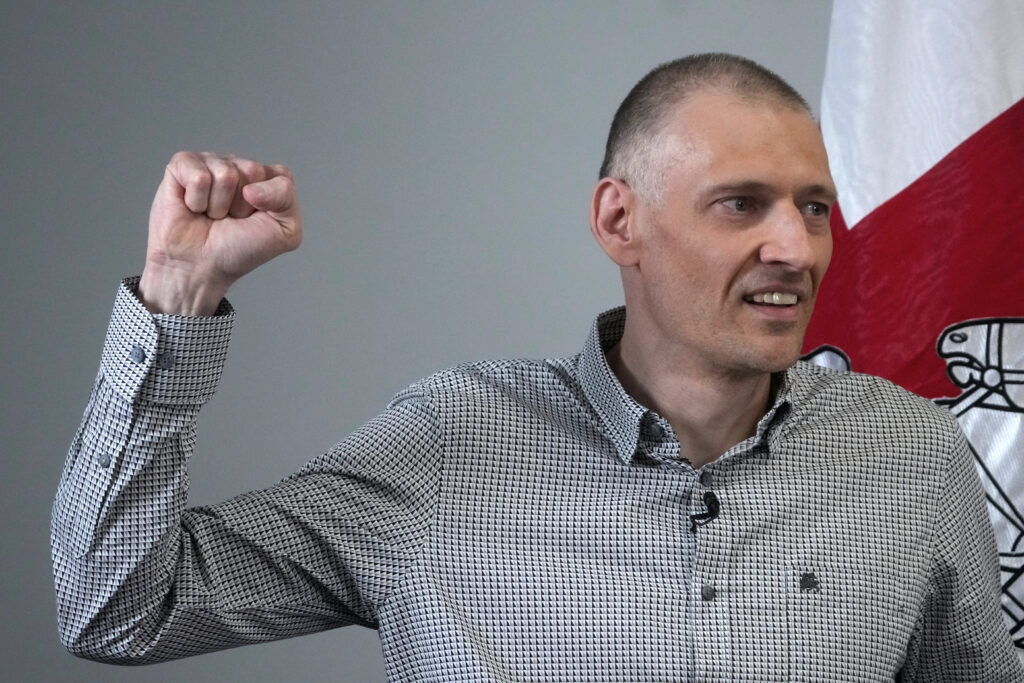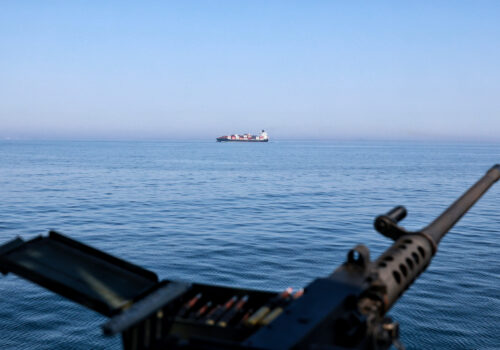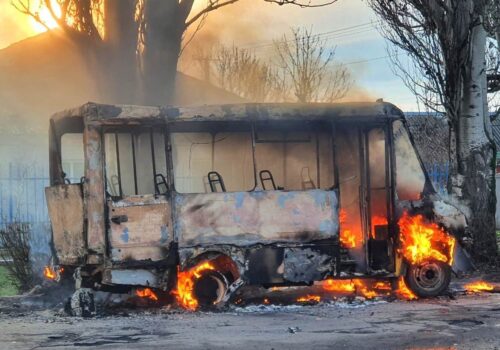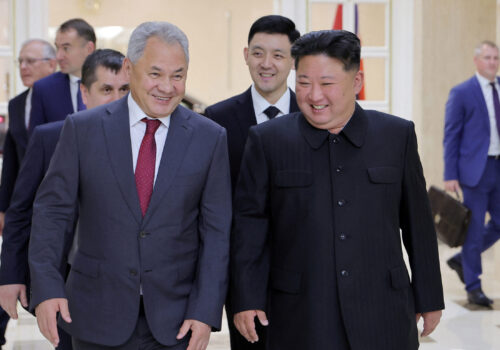The release of prominent Belarusian political prisoner Siarhei Tsikhanouski last weekend took everyone by surprise. It was a rare moment of optimism that offered hope for the future, while also serving to highlight the plight of the more than one thousand Belarusians who are still imprisoned in the country on politically motivated charges.
Tsikhanouski was one of the most high-profile figures to be jailed in summer 2020 during the run-up to Belarus’s presidential election. Following his imprisonment, Tsikhanouski’s wife Sviatlana Tsikhanouskaya ran as a candidate in his place and emerged as a serious threat to the rule of Belarusian dictator Alyaksandr Lukashenka. Forced into exile in the days following the fraud-marred vote, she has spent the past five years leading the Belarusian opposition movement while raising international awareness about the struggle for a democratic Belarus. Seeing an emaciated but free Tsikhanouski finally embrace his wife was a powerful image.
The couple’s reunion on Saturday in Lithuanian capital Vilnius was facilitated by United States diplomatic efforts. Tsikhanouski was one of fourteen Belarusian political prisoners to be released as a result of US Special Envoy Keith Kellogg’s visit to Minsk and meeting with Lukashenka. Among those freed were RFE/RL journalist Ihar Karnei and university lecturer Natallia Dulina.
Tsikhanouskaya expressed her thanks to US President Donald Trump, Kellogg, and other American officials for their role in securing freedom for some of Belarus’s most well known political prisoners. However, she also made a point of underlining that many more Belarusians remain incarcerated on politically motivated charges. “We’re not done. 1,150 political prisoners remain behind bars. All must be released,” she commented.
Stay updated
As the world watches the Russian invasion of Ukraine unfold, UkraineAlert delivers the best Atlantic Council expert insight and analysis on Ukraine twice a week directly to your inbox.
The decision to free some of Belarus’s most prominent political prisoners last weekend was not an act of mercy. It was a calculated move by Lukashenka in pursuit of international legitimacy. The Belarusian ruler has found himself diplomatically isolated since launching a brutal crackdown on protests over his country’s contested 2020 presidential vote, and has become heavily dependent on the Kremlin for his political survival.
It appears that he now wants the United States to soften their stance and recognize him as a potentially useful partner in a difficult region. The goal is normalization on Lukashenka’s terms, with a reduction in international pressure on the regime without any fundamental changes to his repressive system.
Officials in Minsk have made no secret of their desire to discuss sanctions relief and broader engagement with the United States. Lukashenka has also expressed an interest in joining US-led peace talks between Russia and Ukraine. This is a clear signal that he seeks to reposition himself not as a Kremlin satellite, but as a legitimate regional player worthy of diplomatic recognition.
There is no real evidence that Lukashenka is genuinely distancing himself from Moscow. Since 2020, he has allowed Russia to dramatically expand its influence throughout Belarus in a process that some have likened to a creeping annexation. In 2022, Lukashenka let Russia use the country as a gateway for the full-scale invasion of Ukraine. He remains one of the few international leaders to regularly meet with Russian President Vladimir Putin.
Just before Kellogg’s visit, Lukashenka met with Alexander Bastrykin, head of Russia’s Investigative Committee, and pledged that “Belarus is, has always been, and will be with Russia.” Joint military exercises with the Russian army are scheduled to take place in Belarus in September, while recent satellite imagery indicates that Russia is upgrading its nuclear infrastructure at a site in Belarus.
Eurasia Center events

While Lukashenka’s attempts to portray himself as an independent geopolitical actor remain deeply unconvincing, diplomatic efforts by the United States and other democratic allies are yielding results. The fourteen people freed on Saturday were the latest among more than 300 political prisoners to be released by the Belarusian authorities since summer 2024. These political detainees have been used by the Lukashenka regime as bargaining chips to gain favor during negotiations with the international community.
Many of those previously released were already nearing the end of their sentences. Those who remain in Belarus following release reportedly face constant surveillance, pressure to collaborate with the security services, and the threat of re-arrest for any public dissent. Others, like those released last weekend, have been effectively forced into exile and stripped of their citizenship in practice, if not yet officially.
Meanwhile, the situation for those still imprisoned is more critical than ever. Since 2020, eight Belarusian political prisoners have died in custody. Others have died soon after release, often as a result of untreated illnesses or human rights abuses suffered during their incarceration. At least 206 of those currently imprisoned are known to have serious medical conditions. For others, there is no end in sight. Prisoners like Viktoria Kulsha, a 43-year-old mother sentenced in 2021 for moderating a Telegram chat in support of anti-regime protests, continue to face new charges despite being scheduled for release.
The release of fourteen Belarusian political prisoners is welcome news. But the 1172 who remain behind bars deserve more than symbolic gestures. They need a strategy that targets the system responsible for their incarceration. Without this additional pressure, each carefully staged prisoner release risks consolidating Lukashenka’s grip on power and enabling him to manipulate the West while keeping his authoritarian regime intact. The United States clearly has significant leverage over Lukashenka and should not be afraid to use it.
Hanna Liubakova is a journalist from Belarus and nonresident fellow at the Atlantic Council.
Further reading
The views expressed in UkraineAlert are solely those of the authors and do not necessarily reflect the views of the Atlantic Council, its staff, or its supporters.

The Eurasia Center’s mission is to enhance transatlantic cooperation in promoting stability, democratic values, and prosperity in Eurasia, from Eastern Europe and Turkey in the West to the Caucasus, Russia, and Central Asia in the East.
Follow us on social media
and support our work
Image: Belarusian political prisoner Siarhei Tsikhanouski gestures during a press conference in Vilnius, Lithuania. June 22, 2025. REUTERS/Ints Kalnins




